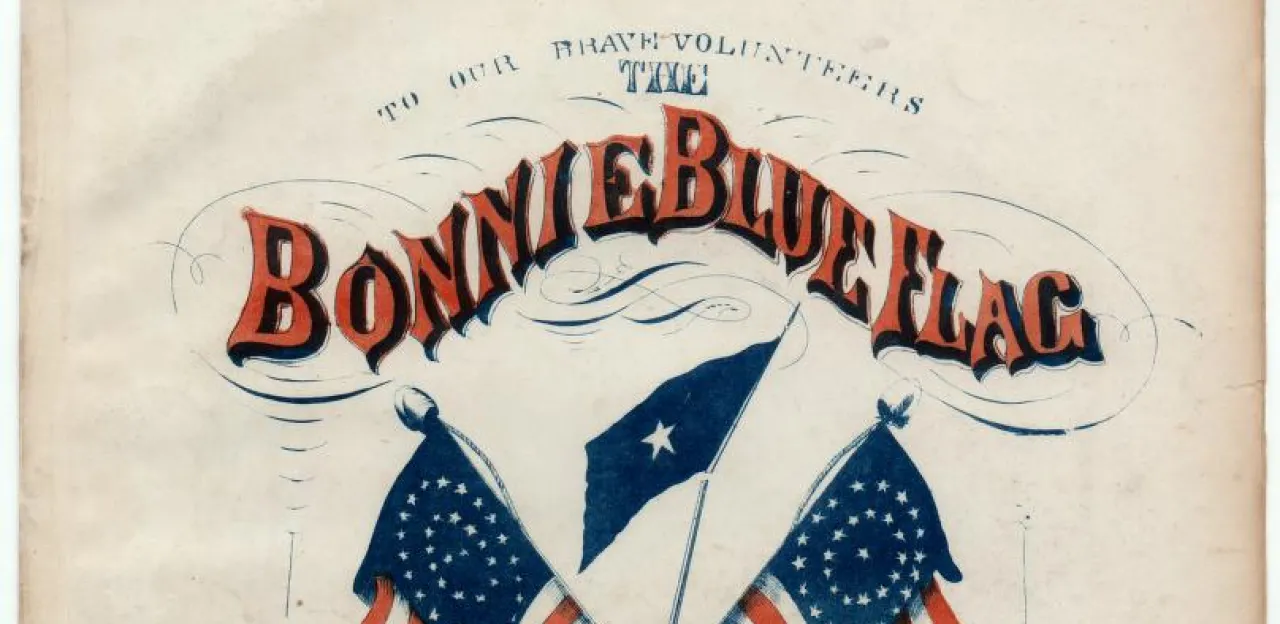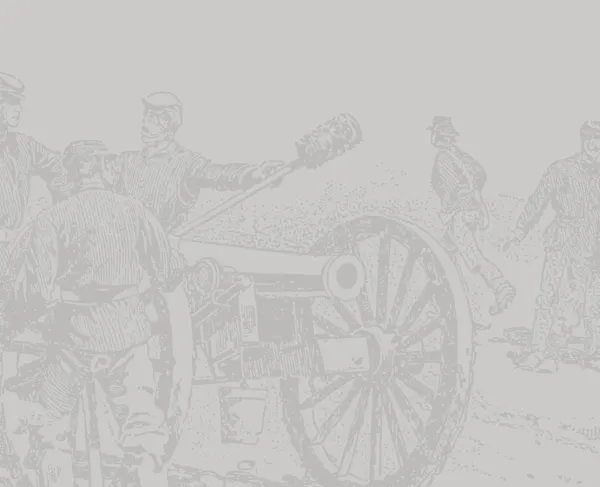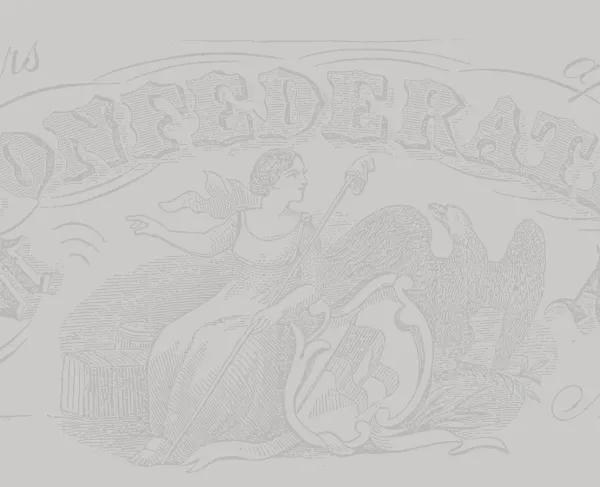Civil War Music: The Bonnie Blue Flag
Next to "Dixie's Land," perhaps no other song was as well loved by the Confederate soldier as "The Bonnie Blue Flag." Written by Harry Macarthy (1834-1888) and sung to the old Irish tune "The Irish Jaunting Car," the song lays out the order of secession of the States that went on to form the Confederacy. The first flag of the Confederacy was a single white star on a blue background. This song, especially popular in the South during the early years of the war, counts out the eleven seceding states one by one.
Macarthy was an English-born vaudeville entertainer who emigrated to the United States in 1849 and settled in Arkansas. He billed himself the "Arkansas Comedian" and traveled widely throughout the South in company with his wife, Lottie, putting on "personation concerts." These performances featured Macarthy singing in the dialect of other cultures, dancing to ethnic-sounding music, and dressing in flamboyant costumes. Stephen Currie, in Music in the Civil War, reports that one of Macarthy's traveling companions during the war years was a cockatoo who had been trained to squawk "Three cheers for Jeff Davis!" on stage.
Although some claim that Macarthy was more interested in attracting audiences and making money than he was in supporting the Southern cause, his song was nevertheless an instant hit with Confederate soldiers and civilians alike. He premiered it during a concert in Jackson, Mississippi, in the spring of 1861 and performed it again in September of that same year at the New Orleans Academy of Music in front of an audience of soldiers headed for the Virginia front. The response was enthusiastic, and Macarthy was suddenly in demand as he had never been before. He traveled throughout the South during the war years, performing to packed houses of appreciative listeners, and although he continued to compose patriotic songs (among them "Missouri and The Volunteer" or "It Is My Country's Call." "The Bonnie Blue Flag" was his greatest success.
The New Orleans music publishing house of A.E. Blackmar issued six editions of The Bonnie Blue Flag between 1861 and 1864 along with three additional arrangements. The tune was so popular that Union General Benjamin Butler was said to have arrested and fined Blackmar for daring to publish it.
The lyrics are:
We are a band of brothers
And native to the soil,
Fighting for the property
We gained by honest toil;
And when our rights were threatened,
The cry rose near and far--
"Hurrah for the Bonnie Blue Flag
That bears a single star!"
CHORUS:
Hurrah! Hurrah!
For Southern rights hurrah!
Hurrah for the Bonnie Blue Flag
That bears a single star.
As long as the Union
Was faithful to her trust,
Like friends and like brothers
Both kind were we and just;
But now, when Northern treachery
Attempts our rights to mar,
We hoist on high the Bonnie Blue Flag
That bears a single star.
CHORUS
First gallant South Carolina
Nobly made the stand,
Then came Alabama,
Who took her by the hand.
Next quickly Mississippi,
Georgia and Florida
All raised on high the Bonnie Blue Flag
That bears a single star.
CHORUS
Ye men of valor, gather round
The banner of the right;
Texas and fair Louisiana
Join us in the fight.
Davis, our loved president,
And Stephens statesmen are;
Now rally round the Bonnie Blue Flag
That bears a single star.
CHORUS
And here's to old Virginia--
The Old Dominion State--
Who with the young Confederacy
At length has linked her fate;
Impelled by her example,
Now other states prepare
To hoist on high the Bonnie Blue Flag
That bears a single star.
CHORUS
Then cheer, boys, cheer;
Raise the joyous shout,
For Arkansas and North Carolina
Now have both gone out;
And let another rousing cheer
For Tennessee be given,
The single star of the Bonnie Blue Flag
Has grown to be eleven.
CHORUS
Then here's to our Confederacy,
Strong are we and brave;
Like patriots of old we'll fight
Our heritage to save.
And rather than submit to shame,
To die we would prefer;
So cheer for the Bonnie Blue Flag
That bears a single star.
CHORUS





